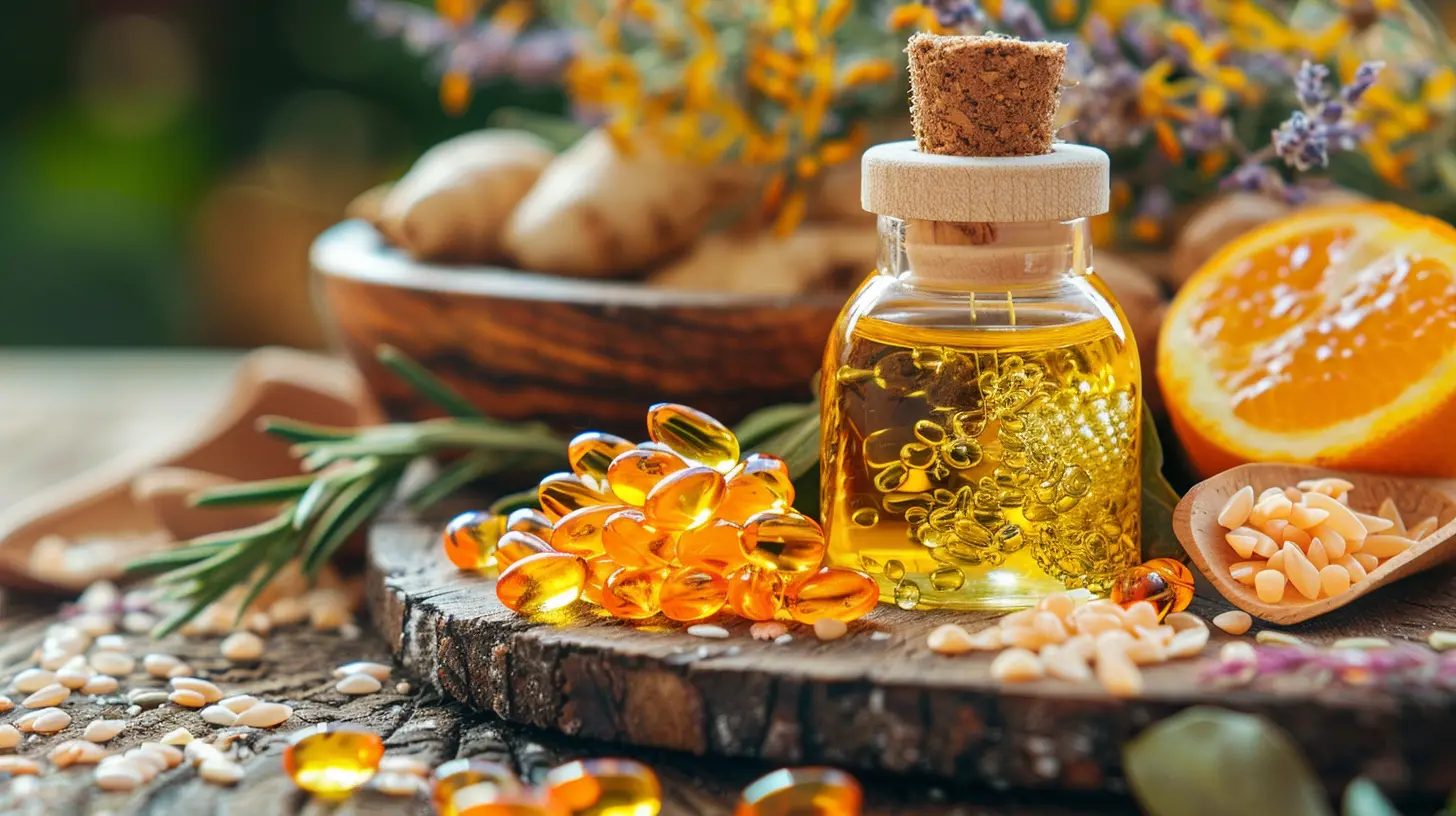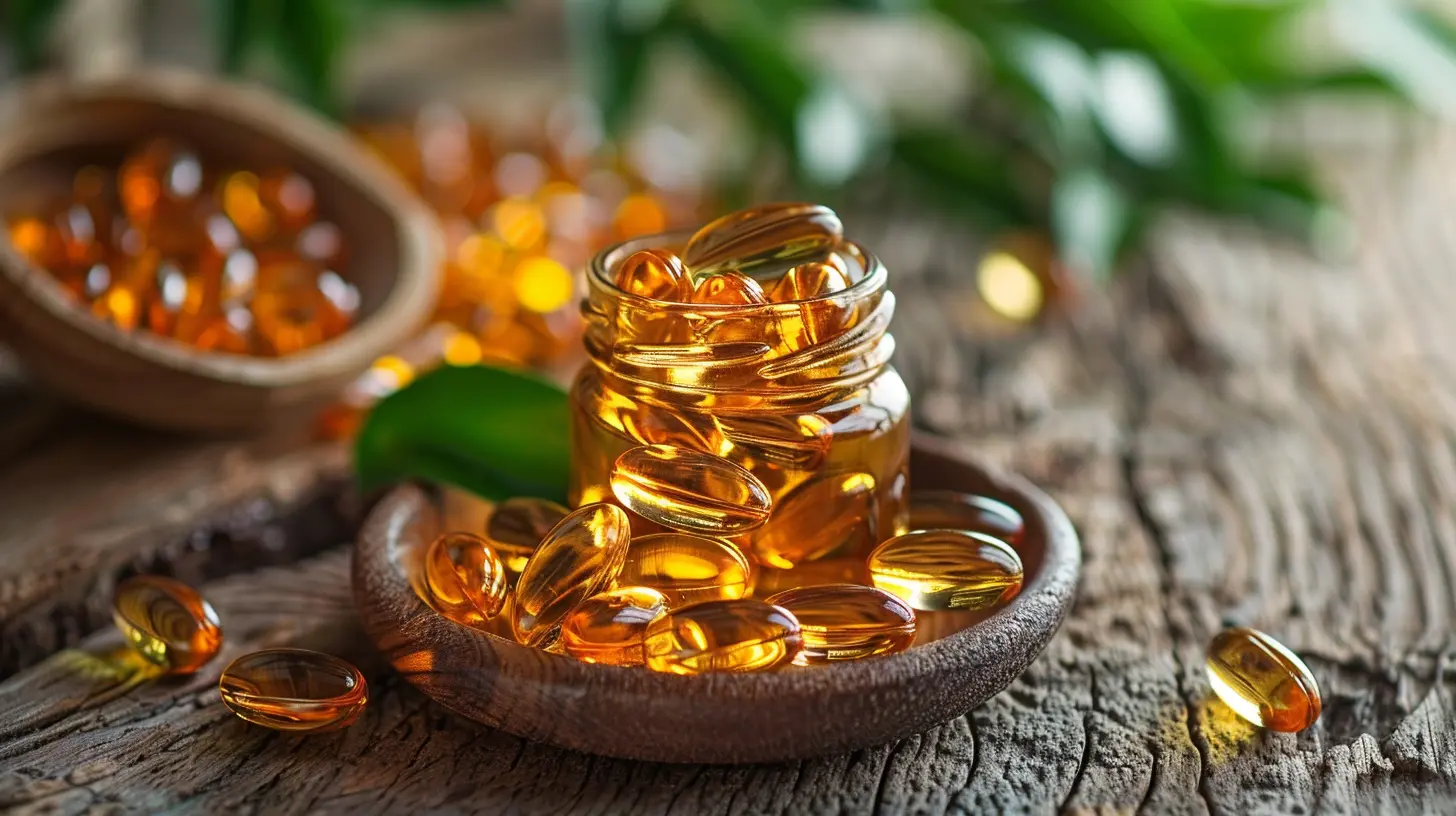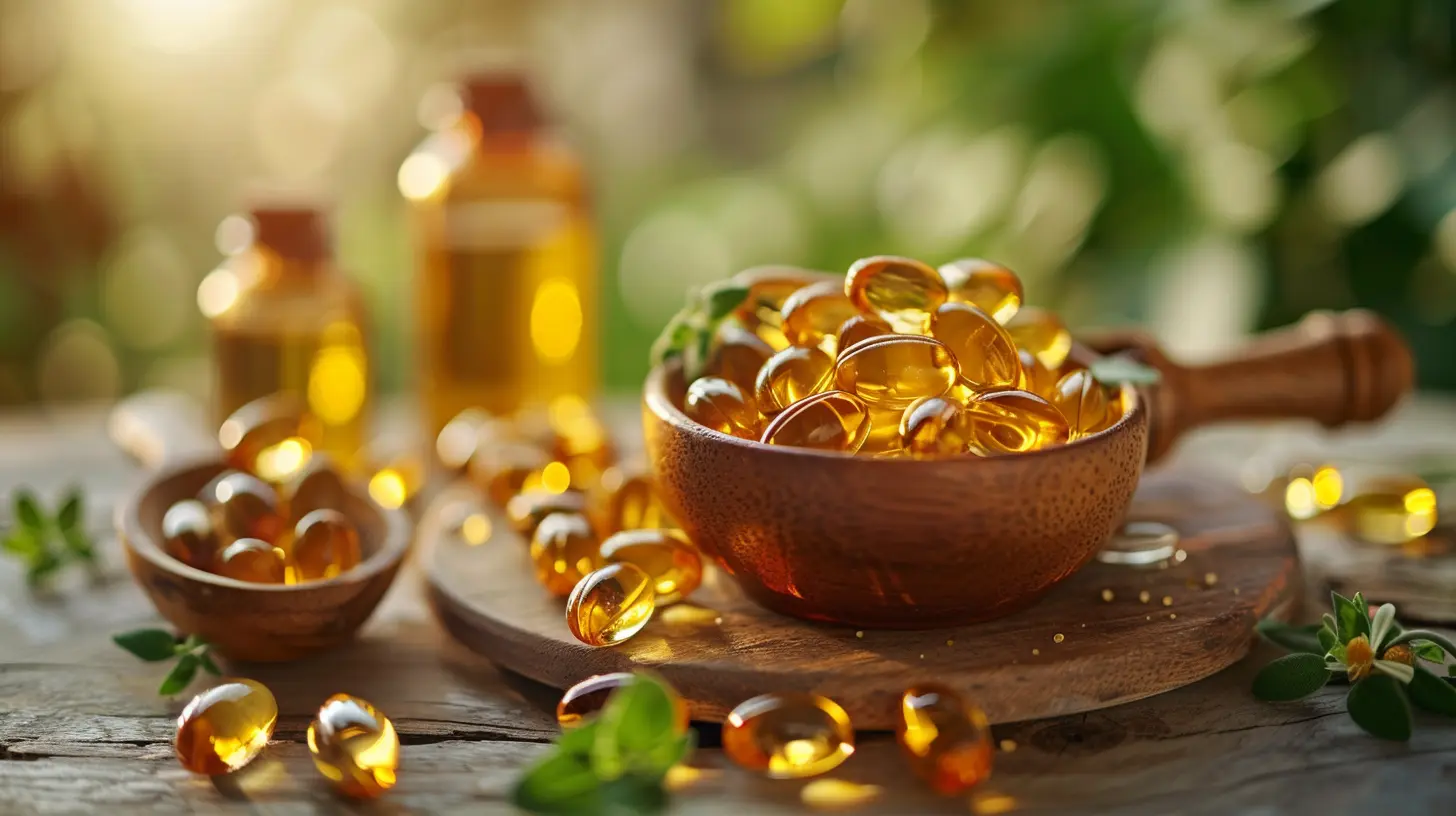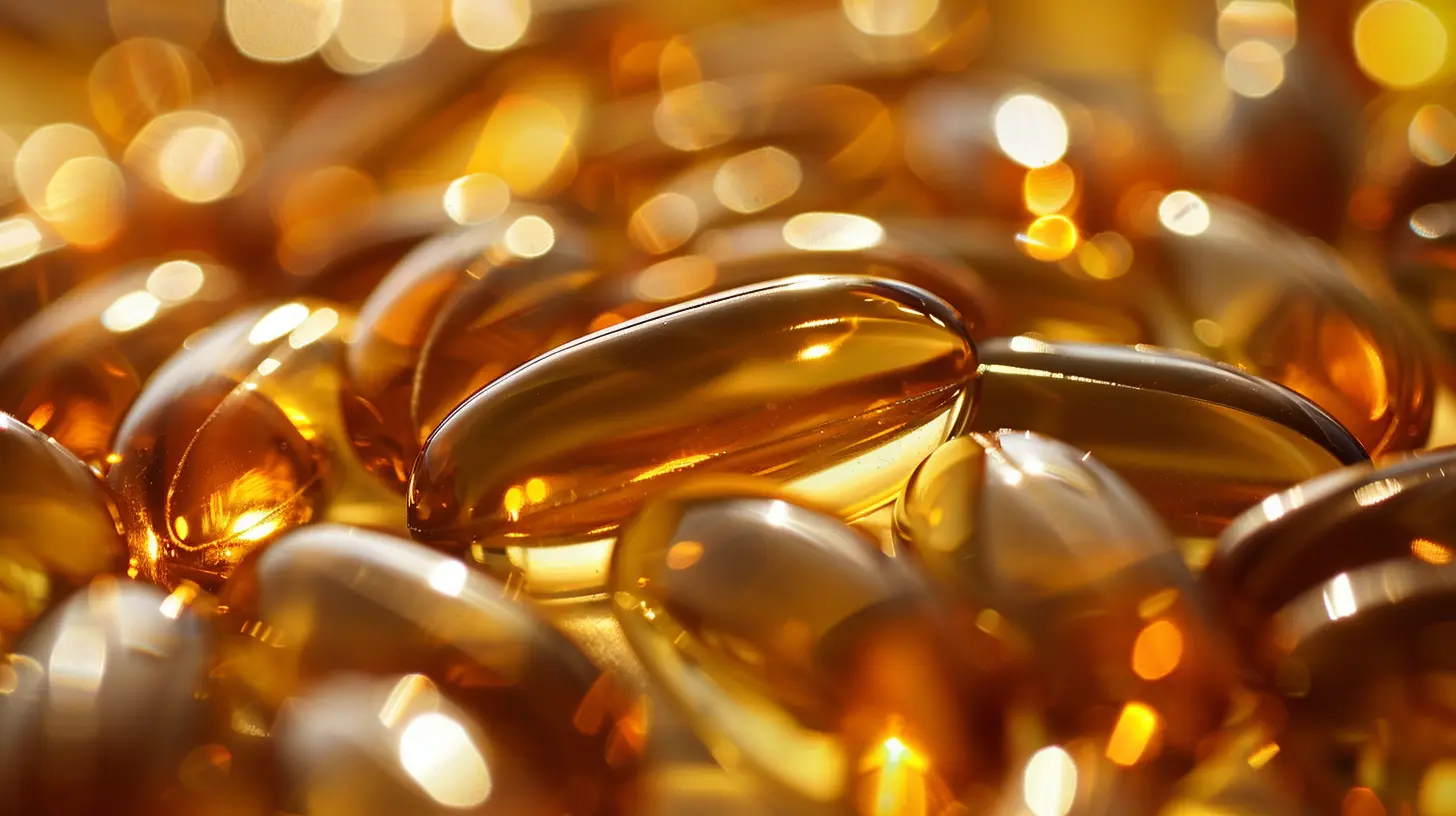The Role of Vitamin E in Skin Protection and Healing
26 June 2025
When it comes to skincare, we're always on the lookout for the next best thing—something that can keep our skin youthful, strong, and glowing. One ingredient that's been around for ages but continues to steal the spotlight is Vitamin E.
You’ve probably seen it on the labels of your favorite moisturizers, serums, and body lotions. But how exactly does Vitamin E help protect and heal your skin? And is it really as magical as it's often claimed to be? Buckle up, because we're about to dive deep into the science and benefits of Vitamin E for skin.

What Is Vitamin E?
Vitamin E is a fat-soluble antioxidant found naturally in various foods, including nuts, seeds, and leafy greens. It comes in multiple forms, but the most biologically active one for humans is alpha-tocopherol.This vitamin is widely recognized for its ability to neutralize free radicals—those nasty molecules that cause premature aging and skin damage. It’s no wonder why Vitamin E has been a staple in the skincare industry for decades!

How Vitamin E Protects Your Skin
We put our skin through a lot—pollution, UV radiation, harsh weather conditions, and even the blue light from our screens. Vitamin E acts as a shield, helping our skin defend itself from these aggressors.1. A Powerful Antioxidant Defense
Free radicals are unstable molecules that damage your skin cells, leading to wrinkles, dark spots, and sagging skin. Vitamin E acts like a superhero, neutralizing these free radicals before they can wreak havoc.Think of it this way: if your skin were an apple, exposure to pollutants and UV rays would cause it to brown and rot faster. Vitamin E works like lemon juice—it slows down that oxidation process, keeping your skin fresh and youthful.
2. UV Protection (But Not a Sunscreen!)
Many people believe that Vitamin E is a natural sunscreen, but that’s not entirely true. While it does provide some level of protection against UV damage, it shouldn’t replace your regular SPF. Instead, Vitamin E helps minimize sun-induced free radical damage, reducing the risk of premature aging and sunspots.For the best sun protection, combine Vitamin E with Vitamin C—they work better together, strengthening your skin’s defense system.
3. Strengthening the Skin Barrier
Your skin barrier is like a security guard, keeping moisture in and harmful substances out. Vitamin E reinforces this barrier, preventing dryness, irritation, and sensitivity. That’s why many hydrating creams and oils contain Vitamin E—it’s fantastic for locking in moisture!
How Vitamin E Helps with Skin Healing
If you’ve ever struggled with scars, burns, or irritation, Vitamin E might already be on your radar. It’s widely known for its skin-healing benefits, but does it actually work? Let’s break it down.4. Speeds Up Wound Healing
Vitamin E promotes cell regeneration, helping wounds heal faster. Studies suggest that applying Vitamin E to minor cuts, burns, or scrapes can reduce inflammation and support new skin formation.However, don’t expect overnight miracles. While Vitamin E can help, it works best alongside other healing ingredients like aloe vera and Vitamin C.
5. Reduces the Appearance of Scars
This one’s a bit controversial. Some people swear by Vitamin E for fading scars, while others claim it doesn’t do much. The truth? It depends on your skin type and the type of scar.Vitamin E can soften scar tissue over time, but it’s not a magic eraser. For better results, try using it in combination with silicone-based scar treatments or a gentle exfoliation routine.
6. Soothes Dry and Itchy Skin
If your skin tends to be dry, flaky, or itchy, Vitamin E might be your new best friend. Its moisturizing properties help restore hydration, making your skin feel soft and smooth.That’s why Vitamin E is often recommended for eczema and psoriasis sufferers—it provides relief from irritation and strengthens the skin’s natural barrier.

How to Use Vitamin E for Maximum Benefits
Alright, now that we know how fantastic Vitamin E is, how do you actually use it? There are two main ways—topically (on your skin) or through your diet.1. Dietary Sources of Vitamin E
Eating a Vitamin E-rich diet can improve your skin from the inside out. Some of the best food sources include:- Almonds
- Sunflower seeds
- Spinach
- Avocados
- Olive oil
- Hazelnuts
Incorporating these foods into your meals can boost your skin’s natural defense system, giving you that healthy glow!
2. Topical Application (Creams & Oils)
Using products containing Vitamin E oil, serums, or creams is a direct way to nourish your skin. Some popular ways to apply it include:- Pure Vitamin E Oil – Apply a few drops at night for deep hydration.
- Moisturizers with Vitamin E – Great for daily use on dry or sensitive skin.
- Vitamin E Capsules – Break them open and apply the oil to scars or dry patches.
💡 Pro Tip: If you have oily or acne-prone skin, avoid pure Vitamin E oil—it can be too thick and clog pores. Instead, opt for lightweight serums containing Vitamin E.
Are There Any Side Effects of Vitamin E?
For most people, Vitamin E is completely safe, but there are a few things to keep in mind.👉 Potential Allergies: Some individuals might be sensitive to topical Vitamin E, leading to redness or irritation. Always do a patch test before applying it all over your face.
👉 Clogged Pores: If you have acne-prone skin, heavy Vitamin E oils might trigger breakouts. Stick to non-comedogenic formulas.
👉 Overuse Can Cause Imbalance: Too much Vitamin E (especially in supplement form) can interfere with blood clotting. Always follow recommended dosages.
Final Thoughts
Vitamin E is truly a skincare powerhouse, offering antioxidant protection, hydration, and healing benefits. While it’s not a one-size-fits-all miracle cure, incorporating it into your routine—whether through diet or skincare products—can do wonders for your skin’s health.If you’re looking for stronger, healthier, and more radiant skin, Vitamin E is definitely worth trying. Just remember that skincare is all about consistency and balance—pairing Vitamin E with other powerhouse ingredients like Vitamin C, hyaluronic acid, and a good SPF will give you the best results.
So, are you ready to give Vitamin E a shot? Your skin might just thank you for it!
all images in this post were generated using AI tools
Category:
SupplementsAuthor:

Eileen Wood
Discussion
rate this article
2 comments
Mara Foster
Vitamin E: Nature’s shield, empowering skin to heal and thrive against daily damage.
November 20, 2025 at 5:30 AM

Eileen Wood
Thank you! I'm glad you found the article insightful—Vitamin E truly is a powerful ally for skin health.
Laura West
Thank you for sharing this insightful article! Vitamin E truly offers valuable benefits for skin protection and healing.
July 3, 2025 at 3:38 PM

Eileen Wood
Thank you for your kind words! I'm glad you found the article insightful. Vitamin E really is a powerhouse for skin health!


